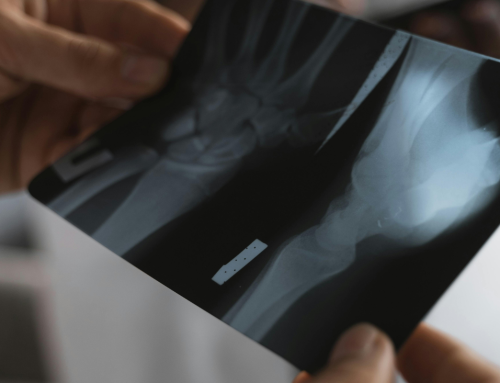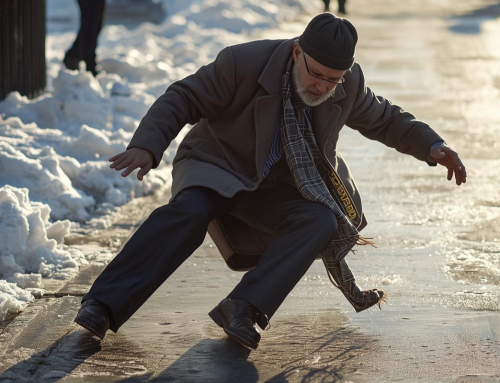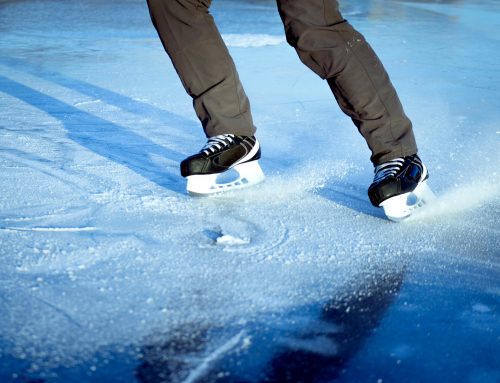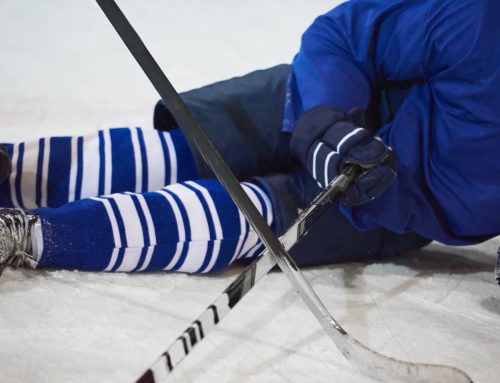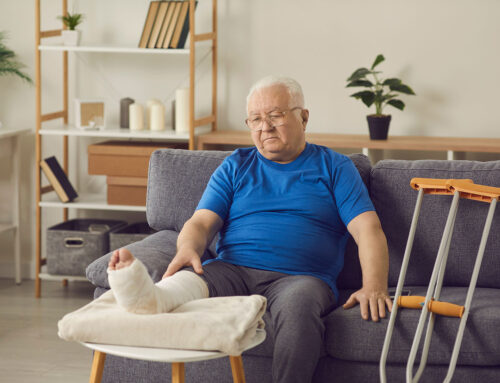When you’re recovering from a broken bone, it’s natural to wonder how everyday habits like your morning coffee or a weekend glass of wine might affect your healing.
Searches like “Does alcohol slow fracture healing?” or “Is caffeine bad for bone recovery?” are common, especially among adults who want to feel in control of their recovery and avoid setbacks.
The truth? You don’t necessarily need to cut everything out, but it’s worth understanding how caffeine and alcohol affect your body’s healing process so you can make smarter choices.
In this article, we’ll break down:
- What the research says about caffeine and bone healing
- Whether alcohol can actually delay your recovery
- Simple, sustainable tips for healing bones faster
- How tools like bone stimulation therapy (LIPUS) may help support healing when progress stalls

TL;DR: Do caffeine and alcohol slow fracture healing?
→ Caffeine may slow healing only in high doses or with low calcium.
→ Alcohol has a clearer negative effect, especially with regular use.
→ Moderation + nutrition are key to supporting recovery.
→ LIPUS therapy offers a non-invasive way to help heal bones faster at home.
☕ Caffeine and Bone Healing: Should You Be Concerned?
Caffeine is a staple for many of us—coffee, tea, energy drinks. But does it slow down bone healing?
In short: only in certain cases.
Some research suggests that caffeine may interfere with bone regeneration by disrupting calcium balance and reducing osteoblast activity (the cells that build new bone).
These effects are more likely in people who:
-
- Consume very high amounts of caffeine.
- Get low calcium or vitamin D.
- Are older adults or postmenopausal women.
Additionally, other studies show that caffeine may delay fracture healing by reducing collagen formation and impacting bone density, particularly in those already at risk of low bone mass.
But here’s the good news:
For most healthy adults, moderate caffeine intake (under 300 mg/day) isn’t strongly linked to delayed healing, especially if you’re getting enough calcium.
Tips to protect bone health while still enjoying caffeine:
🟢 Pair your coffee with calcium-rich foods (like yogurt or fortified milk).
🟢 Space out caffeine and calcium supplements to maximize absorption.
🟢 Stay hydrated to support circulation and healing.
Bottom line: You probably don’t need to give up your morning cuppa—just be smart about when and how you enjoy it.
🍷 Alcohol and Fracture Recovery: What You Should Know
If you’re wondering whether alcohol slows fracture healing, the answer is yes—especially when it’s consumed heavily or regularly.
Research shows that alcohol disrupts multiple stages of the healing process. It can:
-
- Reduce stem cell activity at the fracture site.
- Suppress osteoblasts (the cells that rebuild bone).
- Interfere with new blood vessel growth (needed for tissue repair).
- Increase inflammation, which slows healing and weakens bone quality.
When alcohol becomes a problem.
Excessive alcohol intake has been linked to:
🔴 Higher risk of delayed or nonunion fractures.
🔴 Interference with recovery medications.
🔴 Increased likelihood of dehydration, sleep issues, and even falls.
These side effects don’t just delay healing; they can also make recovery more painful and complicated.
What about the occasional glass?
The impact of alcohol is dose-dependent. Most healthy adults can enjoy an occasional drink (like a glass of wine once or twice a week) without seriously harming their recovery. That said, regular drinking (2–3+ drinks per day) increases the risk of slower healing, complications, and long-term bone weakness. Encouragingly, short-term abstinence after a fracture has been shown to improve bone healing markers—especially in the first 6–8 weeks of recovery.
Note: If you already drink often, cutting back during early healing gives your body a better shot at recovery. And if you're only an occasional drinker, just be mindful and stay hydrated.
What You Can Do to Heal Bones Faster
Fracture recovery isn’t about rigid rules. It’s about making smart, sustainable choices that support healing without draining your energy or enjoyment.
Instead of thinking in terms of “can’t have,” try focusing on simple swaps and habit shifts that make recovery smoother:
💡 Choose calcium-rich foods to pair with your coffee.
💡 Swap evening wine for fortified juice (at least a few nights a week).
💡 Stay hydrated, prioritize sleep, and increase nutrients like magnesium and vitamin D.
These small changes add up and can tip the balance toward faster, stronger healing.
Need More Support? Bone Stimulation Therapy Can Help
If your recovery feels slower than expected, or you simply want to do everything you can to help your bone heal, bone stimulation therapy (LIPUS) may be worth exploring.
LIPUS devices deliver gentle ultrasound waves directly to the fracture site. In just 20 minutes a day, this non-invasive treatment helps:
✅ Stimulate cellular activity
✅ Boost protein expression
✅ Support bone regeneration where you need it most
And because it’s designed to be used at home, LIPUS fits seamlessly into your routine—no clinic visits or supervision needed.
You don’t have to rely on time alone. Bone stimulation therapy gives you a science-backed way to keep your recovery moving forward. Explore how LIPUS works →
Stay Focused, Not Frustrated
Healing takes time, but how you support your body during that time makes a difference. By making mindful choices and using proven tools like the Melmak LIPUS device, you can actively support your fracture recovery and feel more confident along the way.
Discover if LIPUS therapy is right for you →

